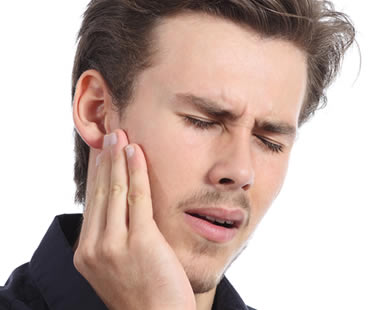
Questions to Ask Your General Dentist
The Importance of Regular Dental Check-ups
Regular dental check-ups are essential for maintaining good oral health. Even if you brush and floss regularly, there are some areas of your mouth that you may miss, making it possible for plaque and tartar to build up. Over time, this can lead to more serious dental problems like cavities, gum disease, and tooth loss.
By visiting your general dentist every six months for a check-up and cleaning, you can catch any issues early on before they become more severe. In addition to preventing dental problems, regular check-ups also enable your dentist to monitor changes in your overall health.
Many health conditions can affect the mouth or vice versa. For example, diabetes can increase the risk of gum disease while gum disease may worsen blood sugar control in people with diabetes.
Questions to Ask Your General Dentist During Your Next Visit
It’s common for patients to feel overwhelmed during their dental visits and forget some important questions they had in mind. That’s why we’ve compiled a comprehensive list of questions that you should ask during these appointments.
The goal is not only to help patients get the most out of their visit but also provide them with accurate information about their oral health status and how best they can maintain it. Over the next sections, we’ll go through various categories of questions that cover everything from general inquiries about dental care guidelines to specific treatments such as cosmetic dentistry procedures or orthodontic work.
General Questions
Going to the dentist for regular check-ups is crucial for maintaining good oral health. During your next visit, it’s important to ask your general dentist some general questions.
How often should I come in for a check-up?
The American Dental Association recommends visiting your dentist at least once every six months for a routine check-up and cleaning. However, the frequency of visits may vary depending on individual needs and oral health status. Your dentist may suggest more frequent visits if you have a history of dental problems or are at higher risk of developing them.
What are some common dental problems that you see?
During your check-up, your dentist will be examining your teeth and gums for any signs of decay or disease. Common dental problems include cavities, gum disease, and tooth sensitivity. Your dentist may also look out for signs of oral cancer or other medical conditions that can manifest in the mouth.
What can I do at home to improve my oral health?
In addition to regular dental visits, there are several things you can do at home to improve your oral health. Brushing twice a day with fluoride toothpaste and flossing daily are essential components of good oral hygiene.
Additionally, eating a balanced diet, limiting sugary drinks and snacks, and avoiding tobacco products can all contribute to better overall oral health. By asking these general questions during your next visit with a general dentist, you will gain valuable knowledge about how to maintain good oral health throughout the year.
Oral Hygiene Questions
Oral hygiene is the foundation of good oral health. Brushing and flossing your teeth regularly are essential to keep your teeth and gums healthy.
However, it is important to ensure that you are using the right techniques and products to maximize their effectiveness. Here are the common questions you should ask your dentist:
Am I brushing and flossing correctly?
The American Dental Association recommends brushing for two minutes twice a day with fluoride toothpaste. When brushing, angle the bristles of your toothbrush towards the gum line, use gentle circular motions, and remember to brush all surfaces of your teeth—including the backs of your front teeth, behind molars, and on top of chewing surfaces.
Flossing is also important to keep your gums healthy by removing plaque buildup between teeth that can lead to gum disease over time. Your dentist will show you proper flossing techniques so that you get maximum benefits from it.
What type of toothbrush and toothpaste should I use?
Your dentist can recommend the best type of toothbrush for you based on your individual needs such as soft or hard-bristled brush depending on whether you have sensitive teeth or not. Most dentists recommend using an electric toothbrush because they offer more consistent cleaning than manual brushes. In addition to choosing a good toothbrush, selecting a fluoride-based toothpaste is an essential part of maintaining good oral hygiene.
Look for pastes with fluoride in them as this mineral strengthens enamel, helping prevent cavities.
Preventative Care Questions
Do I need any dental treatments or procedures?
During your visit to the dentist, it is important to ask about any necessary treatments or procedures. Your dentist will be able to assess the overall health of your teeth and gums and recommend any necessary treatments.
This may include fillings, extractions, cleanings, or other procedures as deemed necessary for your oral health. It is important to address any dental issues as soon as possible in order to prevent further damage and costly treatments down the road.
Are there any warning signs that I should be aware of?
Your dentist can also provide you with information on warning signs to look out for when it comes to dental health. These may include bleeding gums, tooth sensitivity, bad breath, or changes in the appearance of your teeth. By being aware of these warning signs, you can take preventative measures before more serious problems arise.
Can you recommend any preventative measures to avoid future dental problems?
Prevention is key when it comes to maintaining good oral health. Your dentist can offer helpful tips and recommendations on how to maintain a healthy smile such as brushing and flossing regularly, using mouthwash, eating a balanced diet and avoiding sugary foods/drinks.
They may also recommend additional products such as fluoride toothpaste or sealants that can help protect teeth from decay. By following their advice and making small changes in your daily habits/behaviors you can avoid bigger problems down the line.
Schedule an Appointment
Regular dental check-ups are crucial in maintaining good oral health and preventing future dental problems. However, simply showing up to your appointment is not enough. Asking questions and being proactive about your oral health can make all the difference in the long run.
The Importance of Asking Questions
Asking questions during your dental visit helps you better understand your oral health and any potential problems that may arise. It also allows you to take an active role in your treatment plan and make informed decisions about your dental care. By asking questions, you can ensure that you receive the best possible care and maximize the benefits of each visit.
Don’t Be Afraid to Ask
If you’re unsure about something or have a question, don’t be afraid to speak up. Your dentist is there to provide expert advice and answer any questions you may have. No question is too small or insignificant when it comes to your oral health.
A Brighter Smile Awaits
By following these tips, asking the right questions, and being proactive about your oral health, a brighter smile awaits! Remember that prevention is key when it comes to avoiding more serious dental problems down the line. Make regular appointments with your dentist, ask lots of questions, maintain good oral hygiene habits at home, and watch as your smile shines brighter than ever before!
Do not let another day go by without taking care of your dental needs. Request an appointment now at our McDonough dental office!




 770-957-5214
770-957-5214  E-Mail Us
E-Mail Us 
